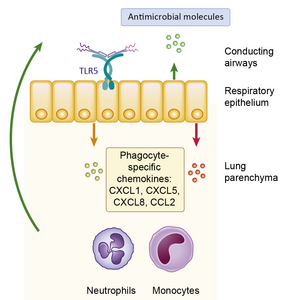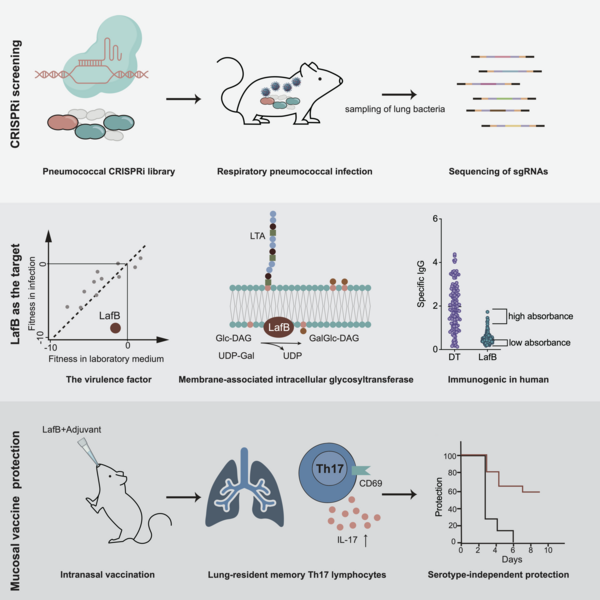Research activity
Axis 1 - Identify virulence factors of S. pneumoniae and K. pneumoniae and myeloid cell-associated protective innate immune responses
The aim is to identify bacterial factors essential for airway colonization and characterize host innate immune responses to S. pneumoniae and K. pneumoniae. Using transcriptomics, proteomics, and CRISPRi-seq in animal and human models, the study will pinpoint conserved bacterial proteins critical for nasal and lung colonization. Functional studies will assess their role in infection and disease progression. Additionally, multiOmics and systems biology approaches will elucidate immune responses in infected tissues.
Axis 2 - Develop targeted immunotherapies to treat bacterial pneumonia
This research aims to enhance immune defense against bacterial pneumonia by combining innate immune stimulators with antibiotics to improve pathogen clearance and combat antibiotic resistance. The team is developing a flagellin aerosol therapy (FLAMOD) to complement antibiotics for drug-resistant pneumonia, assessing its efficacy in animal models and a phase 1 clinical trial. Additionally, the research aims to stimulate IL-17 and IL-22 production in the airways by targeting dendritic cells with a monoclonal antibody and recombinant flagellin. This strategy will be tested in models of K. pneumoniae and S. pneumoniae infections, with a focus on enhancing bacterial clearance and evaluating combination treatments with antibiotics.
Axis 3 - Produce next-generation respiratory adjuvants and vaccines against nasopharyngeal carriage and pneumonia
This research focuses on developing innovative nasal vaccines to prevent respiratory infections, including S. pneumoniae, by targeting the nasal and lung tissue, which contain key immune components tissue-resident memory T and B lymphocytes. Unlike traditional vaccines that induce systemic immunity, nasal vaccines stimulate local immune responses at the site of infection. The project will identify key immune drivers in the airways and evaluate vaccine efficacy using antigens identified in axis 1.







